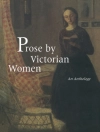In Max O’Rell’s ‘Friend Mac Donald, ‘ the reader is taken on a delightful journey through the eyes of the protagonist as he navigates the complexities of friendship, loyalty, and human relationships. O’Rell’s writing style is characterized by wit and humor, making the book an engaging and entertaining read. Set in the late 19th century, the novel reflects the changing social norms and values of the time, offering valuable insights into the era’s culture and society. The author’s keen observations and sharp dialogue add depth to the narrative, making ‘Friend Mac Donald’ a timeless classic in the realm of literature. O’Rell’s clever use of satire and irony makes the book a thought-provoking exploration of human behavior and emotions. Max O’Rell, a French author known for his satirical works, brings a unique perspective to the genre of fiction. His background in journalism and travel writing is evident in his keen attention to detail and vivid descriptions. O’Rell’s keen understanding of human nature shines through in ‘Friend Mac Donald, ‘ making it a must-read for fans of classic literature and social commentary.
Про автора
Max O’Rell was the pen name of L�on Paul Blouet (1848-1903), a French author, humorist, and journalist, best known for his satirical takes on Anglo-American society and culture. Born in Brittany, France, O’Rell initially pursued a career in teaching, but his sharp wit and distinctive commentary soon led him to the literary world. He gained fame with the publication of ‘John Bull & Co’ (1886), which humorously critiqued English society based on his experiences living in England. His writing was characterized by its accessible style, humor, and keen observations on human nature. One of O’Rell’s celebrated works is ‘Friend Mac Donald’ (1887), which continued his exploration of societal quirks, through the story of an amicable Scottish character navigating life in England. O’Rell’s literary contributions reflect his adeptness at skewering social conventions and highlighting the idiosyncrasies of cultural interactions. His books remain an interesting snapshot of 19th-century societal norms and the often amusing misunderstandings that can arise between different cultures.












